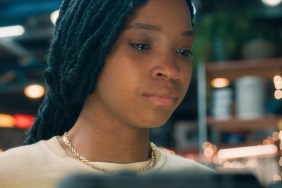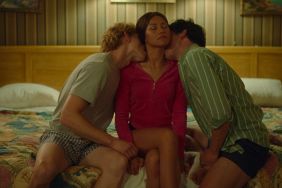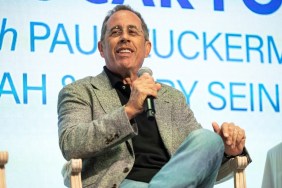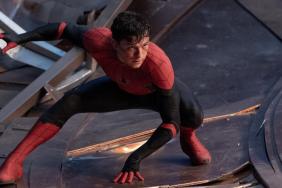CS sits down with It Comes at Night director Trey Edward Shults
A24 has provided ComingSoon.net with a chance to interview acclaimed It Comes at Night director Trey Edward Shults (Krisha). Our 1-on-1 conversation touches on the film’s bleak, post-apocalyptic tone as well as the mini-controversy of whether or not the film is even considered a horror movie. Check it out below, and see the movie in theaters now!
RELATED: Watch the It Comes At Night Trailer
Imagine the end of the world — now imagine something worse. Award-winning filmmaker Trey Edward Shults follows his incredible debut feature Krisha with It Comes At Night, a horror film following a man (Joel Edgerton) as he learns that the evil stalking his family home may be only a prelude to horrors that come from within. Secure within a desolate home as an unnatural threat terrorizes the world, the tenuous domestic order he has established with his wife and son is put to the ultimate test with the arrival of a desperate young family seeking refuge.Despite the best intentions of both families, paranoia and mistrust boil over as the horrors outside creep ever-closer, awakening something hidden and monstrous within him as he learns that the protection of his family comes at the cost of his soul.
It Comes at Night also stars Riley Keough (Mad Max: Fury Road), Christopher Abbott (A Most Violent Year), Kelvin Harrison Jr. (The Birth of a Nation) and Carmen Ejogo (Alien: Covenant).
ComingSoon.net: So after the movie I was joking with a friend that “It Comes at Night” felt like an episode of “The Walking Dead” that a writer turned in to deliberately get fired. Not because it’s a bad movie, but just because it’s so unrelentingly bleak. Can you speak to the bleak tone of the piece?
Trey Edward Shults: Yeah. It comes from a really personal place. I had a rough relationship with my dad. I hadn’t seen him in over ten years when he got pancreatic cancer. I was with him on his deathbed and he had so much regret. I just wanted him to find peace. It was one of the most traumatic experiences of my life, and certainly when I was processing grief and all my fears about this big, heavy stuff it just came out into this thing. It was important to keep intact what that was, that initial purge. To me, yes, the movie’s bleak, but I think there’s positivity in that. I think talking about what this movie is about and having to confront that is a positive thing. To deal in that subject matter I think you’ve gotta go there, otherwise it’s a comic book.

CS: Right. And also we are in an almost oversaturated place with the post-apocalyptic genre with things like “Walking Dead” and “World War Z” and “Fury Road” and so on. Did you feel like by going there it helps to separate this one from the rest of the pack?
Trey Edward Shults: It’s interesting. I was interested in why this personal thing with my dad led me to the whole post-apocalyptic thing. I think once again it was personal. I started thinking about that stuff, and as with Krisha, which is about a family get-together over Thanksgiving following a relative coming back. It sounds like something you’ve seen before. Same with this. It sounds like something you’ve seen before, but I hope what seperates them is the personal and human factor that goes into it. It’s a good question. I’ve never seen “The Walking Dead,” and the apocalypse stuff I love is more in the vein of “Take Shelter” and “Melancholia” or something where it’s a small apocalypse.
CS: A24 is marketing it like a horror movie, but the film itself feels more like a straight survival thriller than a horror movie. I talked to Robert Eggars about the backlash “The Witch” got after it was promoted as the scariest thing since sliced bread, and when people went to see it there was a dissonance. Are you afraid of a similar backlash?
Trey Edward Shults: Yeah, I mean, I can’t control any of that. I can’t control the marketing, I can’t control the response. I talked to Robert about that, and about this movie and all that stuff. I’ll just say this: Like Rob these movies come from personal places. I didn’t even make it with the intention that this was a horror movie, per se. This is the movie I want to make now, and how that gets in the world I can’t control. Same with Robert and “The Witch.” He didn’t make it to make the scariest movie ever, he made a personal movie that he cared about. How those things get put out there is beyond our control, unfortunately. Anyone who asks me, I say do not expect a horror movie at all, and come at it with an open mind. This movie does have stuff on its mind.
CS: Another thing that’s notable about the movie is the pace, which is very slow burn and deliberate. Were you ever worried about losing the audience with all the long takes?
Trey Edward Shults: I do think about pace, of course. The pace for this movie was always, in my mind, like a chamber piece, more patient in the vein of things I love like “The Shining.” That’s not a fast-paced movie.
CS: No it isn’t.
Trey Edward Shults: That was always the intention with it. This movie was also not designed for mass consumption. I didn’t make this thinking I gotta get all these butts in the seats with a huge release. I got to do what I wanted and I believed in. And now it’s coming out.

CS: Everyone in the cast gives very believable, grounded performances. How did you set the tone on set for the actors?
Trey Edward Shults: I just approached it as, even though we’re making a movie that’s not the lightest subject matter, I wanted to create a family and I wanted them to have fun doing it and bring themselves to it. To me it’s a collaboration. I’m not gonna force anything down an actor’s throat. I pick people who want to work with me. I want the crew and cast to be happy to be there.
CS: One of the most interesting beats in the story is the way Travis kind of lusts after Kim, Riley Keough’s character. The movie dared to make the point that it must really suck to be a hormonal teenage boy during the apocalypse!
Trey Edward Shults: (laughs) Yeah. I feel bad for that kid. It’s the first woman he’s seen besides his mom in who-knows-how-long. The story’s built through Travis’s eyes, from dealing with the grief to being holed up in this house with this one other woman who he’s in love with. I always said the camera is Travis, or we’re shooting it how he would perceive it.
It Comes at Night
-
It Comes at Night

-
It Comes at Night

-
It Comes at Night

-
It Comes at Night

-
It Comes at Night

-
It Comes at Night

-
It Comes at Night

-
It Comes at Night

-
It Comes at Night

-
It Comes at Night

-
It Comes at Night

-
It Comes at Night










